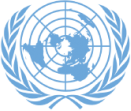Distinguish Co-chairs
It is my honour to participate in this "High-level plenary meeting on addressing large movements of refugees and migrants". Nepal commends the Co-chairs as well as the Secretary-General for taking use of the convening power of the United Nations to deliberate on this burning topic of our time, which has all round implications to our countries and peoples.
I also wish to acknowledge that it has come as yet another crucial event among the Secretary-General’s many inspiring initiatives to eradicate poverty and hunger, to combat climate change, to achieving the SDGs and solving important international issues such as migration and refugees, and also his role in garnering adequate international political will to meaningfully and substantially contribute to making the world a better place to live in.
I also wish to recognize the important work of the two co-facilitators in guiding the negotiations leading to the successful adoption of the “New York Declaration on Refugees and Migrants” this morning.
Mr. Chairman,
International migration is a multidimensional reality of our time and we have to face it effectively in its entirety. We must seek to ensure orderly, safe, regular and responsible migration and mobility of people, including through the implementation of planned and well-managed migration policies, taking into account the various types and causes of migration such as economic, political, environmental, conflict etc., and appropriate humanitarian responses in time of need.
Migrants workers today constitute a significant portion of the current human mobility all the world over, contributing to the development and growth of host economies as well as helping their families in the sending countries. The remittances they earn is not without huge and long term social, cultural and environmental costs back home. In case of Nepal, for example, the out migration of youth has left large swathes of traditionally cultivated highland terraces barren, much of rural population is either too young or too old, family breakdowns have gone up and migration to urban areas has increased pressure on infrastructure tremendously. These costs, unless calculated and factored into the calculation of remittances, take a different toll. Furthermore, 80% of the hard-earned remittance goes to consumption, supposedly unproductive sector, and at the end of the day, it only contributes to unhealthy consumer patterns and income inequality. At the level of Nepal, SDG 8 embraces the need of massive financial literacy among workers and needs to be implemented in earnest.
Mr. Chairman,
Nepal reaffirms her view that there should be coordinated and concerted efforts at the national, regional and international levels to protect and promote the basic human rights and dignity of the migrant workers and also combat violence against women migrant workers and protect their basic human rights. At the same time, rights of migrant workers as recognized by the relevant international instruments should be guaranteed by the host countries.
We have adopted this morning the New York Declaration for Refugees and Migrants, which I believe will address many issues surrounding the refugees and migrants. There are, nevertheless, some important issues that need our urgent attention.
First, the problems of the developing counties that host large numbers of refugees should also be taken into consideration in light of their capacity to do so and also make commitments included in the outcome document adopted this morning. Expecting more commitments from refugee hosting countries, including the LDCs, will be just adding to their burden rather than the much-talked about burden sharing.
Second, Nepal views that since not all migrants are refugees, they should be distinctively treated as such. For example, Nepali nationals in different countries are legally working there as per the demands of the host countries.
Despite our limited resources and capacity and also not being a signatory to the 1951 Refugee Convention or the 1967 Protocol either, Nepal is a generous host to refugees coming from different directions for a long time on humanitarian grounds. Nepal is grateful to the international community for its understanding and support to Nepal in managing the refugees within its borders. We have come to realize, however, that the issues of political refugees can hardly be resolved with their source countries taking a back bench. For the man-made cause of refugees and migrants, it should be the responsibility of the country causing it and not the country where they are residing.
While Nepal appreciates concrete initiatives taken by many developed countries to resettle the Bhutanese refugees living in Nepal for a long time, their right to go back to their homeland should be respected. At the same time, I like to remind that the remaining refugees in Nepal in refugee camps are eagerly waiting to go back to their homeland. International community should continue to fund the refugees until they are resettled back to their homeland.
Third, we are aware that the scale of resources required for addressing the problems facing large movements of refugees and migrants is huge. If these required resources are mobilized at the cost of development aid to LDCs and other countries in special situation that may unwittingly increase the risk of producing more migrants and refugees due to the direct effects on the economies and related political issues in these countries. This will be an action to treat the symptoms, not the disease.
I conclude, Mr. co-chairs, with my confidence that the deliberations on such important international issues and commitments made here today and in the coming days will significantly contribute towards addressing the issues relating to large movements of migrants and refugees. Nepal looks forward to judicious implementation of the declaration we agree as outcome of this high-level meeting.
I thank you.


